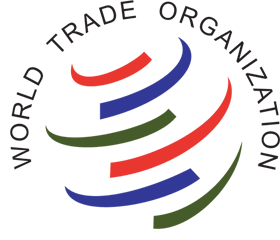WTO
The World Trade Organization (WTO) was set up following the Marrakech Agreement on 1 January 1995. It is the successor to the GATT and its Secretariat. It has a global membership and is headed by a Ministerial Conference of all members.
According to the Marrakech Agreement, the mandate of the WTO is to
- provide a forum for negotiations;
- facilitate the implementation and operation of multilateral trading agreements;
- administer the dispute settlement mechanism;
- provide multilateral surveillance of trade policies; and
- cooperate with the IMF and the World Bank to achieve greater coherence in global economic policy making.
WTO Members set up a single institutional framework for the many multilateral and plurilateral trade agreements that had been concluded under the auspices of the GATT and the Uruguay Round. These agreements are collected in the Marrakech Agreement establishing the WTO and bind all signatories of this agreement. They include:
- the General Agreement on Tariffs and Trade (GATT) 1994 (incorporating GATT 1947 and amendments made by understandings and supplementary agreements to the GATT);
- the General Agreement on Trade in Services (GATS); and
- the Agreement on Trade Related Intellectual Property Rights (TRIPS).
Two plurilateral agreements are also collected in the Marrakech Agreement: the Agreement on Government Procurement, and the Agreement on Trade in Civil Aircraft. They are binding only to signatories to these particular agreements.
Work related to trade facilitation
The trade facilitation negotiations concluded with the adoption of the Agreement on Trade Facilitation at the 9th Ministerial Conference in Bali, 3-6 December 2013. With this Agreement, WTO members established a new legal framework that fills a perceived gap in the existing GATT legal system. The Agreement is structured into two sections. It includes a variety of substantive obligations and detailed provisions on special and differential treatment for developing and least developed country members as well as the provision of technical assistance and capacity building. The substantive obligations include, amongst others, obligations on publication and access to trade related information, appeal procedures, the simplification of trade procedures and goods clearance processes, agency cooperation, as well as cross-border customs cooperation.

